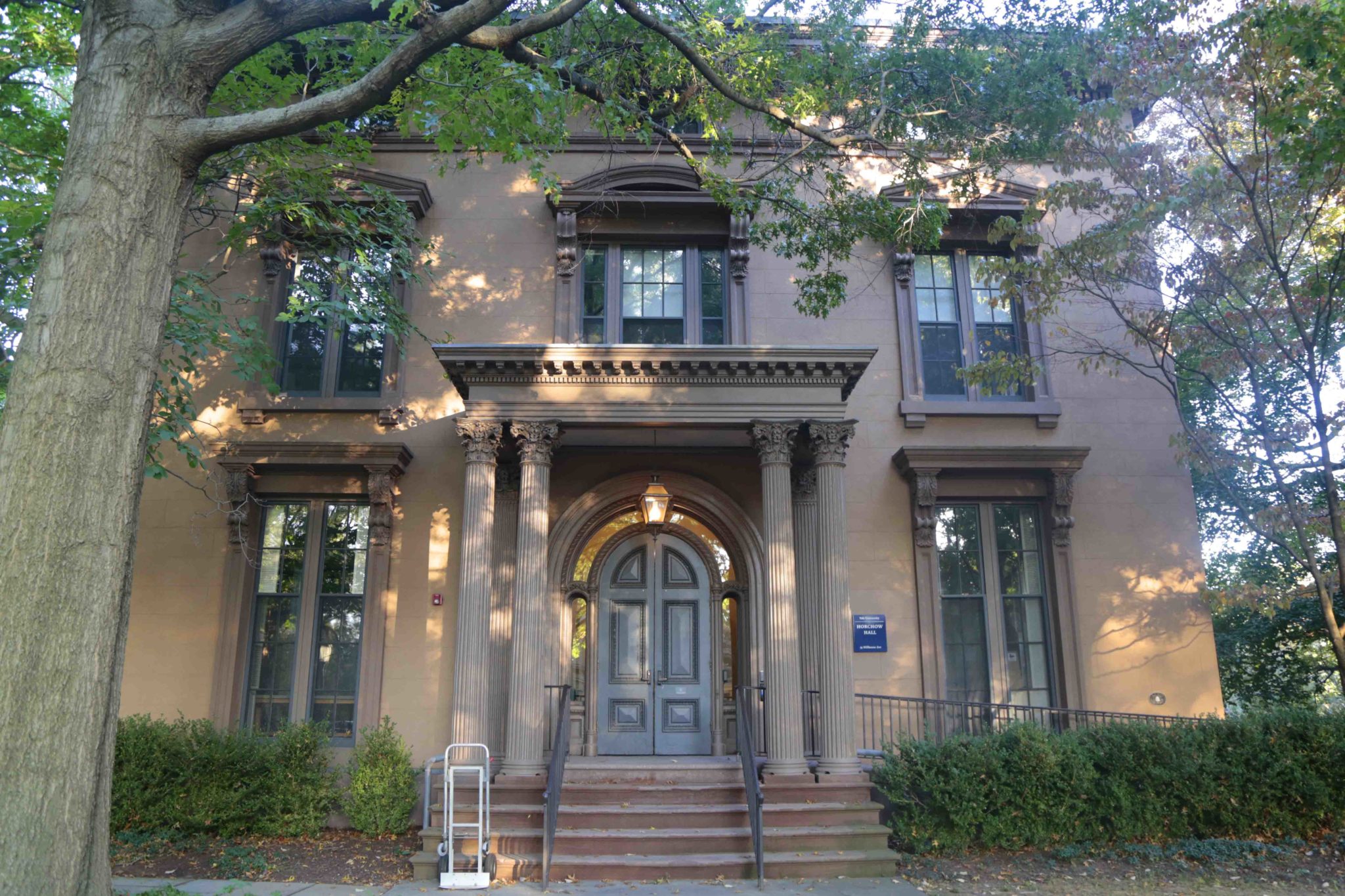
Although much about the Kerry Initiative has been revealed to the public, one aspect of the program remains a mystery — its cost to the University.
Yale’s 2018 budget book, which breaks down costs and revenues across different parts of the University, revealed that the operational budget for the Jackson Institute for Global Affairs, which hosts the initiative, is expanding by $2 million this year. But the report does not reveal the cost of the Kerry Initiative on its own, and none of the administrators contacted by the News would disclose it either.
Any money allocated to the initiative would likely cover the salary of John Kerry ’66, the stipends given to students selected as Kerry Fellow and potentially the costs of other events associated with the program, such as the climate conference that Yale hosted last month.
James Levinsohn, the director of the Jackson Institute, deferred all requests for comment about the initiative’s funding to the Office of the Provost. University Provost Benjamin Polak did not respond to a request for comment.
“We just don’t share any such program-level information,” said Pericles Lewis, the newly appointed deputy provost for international affairs and vice president for global strategy. “The annual [financial] reports are very detailed, and we release more information than most peer institutions, but we don’t break it down by every individual department.”
The 2018 budget book reveals that the Jackson Institute had a $9.4 million operating budget last year and that the budget is set to expand to $11.4 million this coming year. Last year, the funding for the Jackson Institute came from “nongeneral appropriation” sources, including money from Yale’s endowment, sponsor agreements and gifts given to specific causes or programs at the University. The additional $2 million in this year’s budget comes from “general appropriations,” unrestricted sources of income such as tuition, room and board and gifts to the University that are not tied to specific initiatives.
The budget book also includes a breakdown of how the additional $2 million allocated to the Jackson Institute will be used, revealing that $600,000 will cover faculty and staff salaries and $1.5 million will go toward “nonsalary expenses.” These figures, however, add up to $2.1 million. The Jackson Institute did not immediately respond to an email asking for a comment on the $100,000 discrepancy.
The University has been criticized for its budget secrecy by faculty and students alike in recent years. Until fiscal year 2017, the only financial information the University released to the public was contained in financial reports published after audits. The reports did not break down costs and revenues by specific schools and departments. In January 2017, the Faculty of Arts and Sciences senate released a report calling for Yale to be more transparent about its finances.
The University’s 2018 budget book breaks down costs and revenues across different parts of the University in more depth than any previous annual report. In the 2018 budget book, for instance, each professional school’s budget is described separately.
“In its scope and level of detail, the new budget book goes far beyond anything the university has made public before,” said Matthew Jacobson, chair of the FAS Senate. “The FAS Senate commends Vice President Murphy and Provost Polak for this move toward greater transparency.”
Still, while this year’s budget book includes more information than past financial reports, it does not say how much funding is allocated to each department and program within the University.
Yale students and faculty interviewed were divided on whether fiscal transparency at the University is an issue.
Kayhan Nejad GRD ’21 said the administration has a right to keep some financial information private, particularly details concerning notable speakers such as Kerry and Leonardo DiCaprio, who spoke at the climate conference.
“There is a certain etiquette involved in bringing high-profile speakers to Yale,” Nejad said.
April Alessandro ’18 agreed that the University should have a right to privacy since events like the climate conference are “for the good of the entire community.” However, she emphasized the need for transparency regarding funding for student-led organizations like the Yale College Council, the First-Year Counselor Program and Dwight Hall.
Echoing that sentiment, Florian Fuchs GRD ’17, a lector in the German department, said Yale should disclose the cost of all University-wide events, as well as the donors and sponsors who fund these events. Fuchs added that more budget transparency would help counter criticisms that Yale is a profit-driven corporation.
On the other hand, Sophia Morales ’19 said students do not have a right to know how Yale spends its money.
“Every individual who goes here chooses to come here knowing that it’s a private institution, knowing that we are not in charge,” Morales said.
However, Malina Simard-Halm ’18 said students should have access to information on how much money is allotted to specific departments and majors that have been historically underfunded, like African American Studies, Women’s, Gender, and Sexuality Studies and Ethnicity, Race and Migration.
Nejad also expressed concern that less money will be allocated to the humanities and other programs as the University bolsters its STEM initiatives. Greater financial transparency, he said, would “reveal a lot about the administration’s priorities” regarding different academic departments.
The Jackson Institute for Global Affairs was founded in 2010.
Anastasiia Posnova | anastasiia.posnova@yale.edu
Alice Park | alice.park@yale.edu







